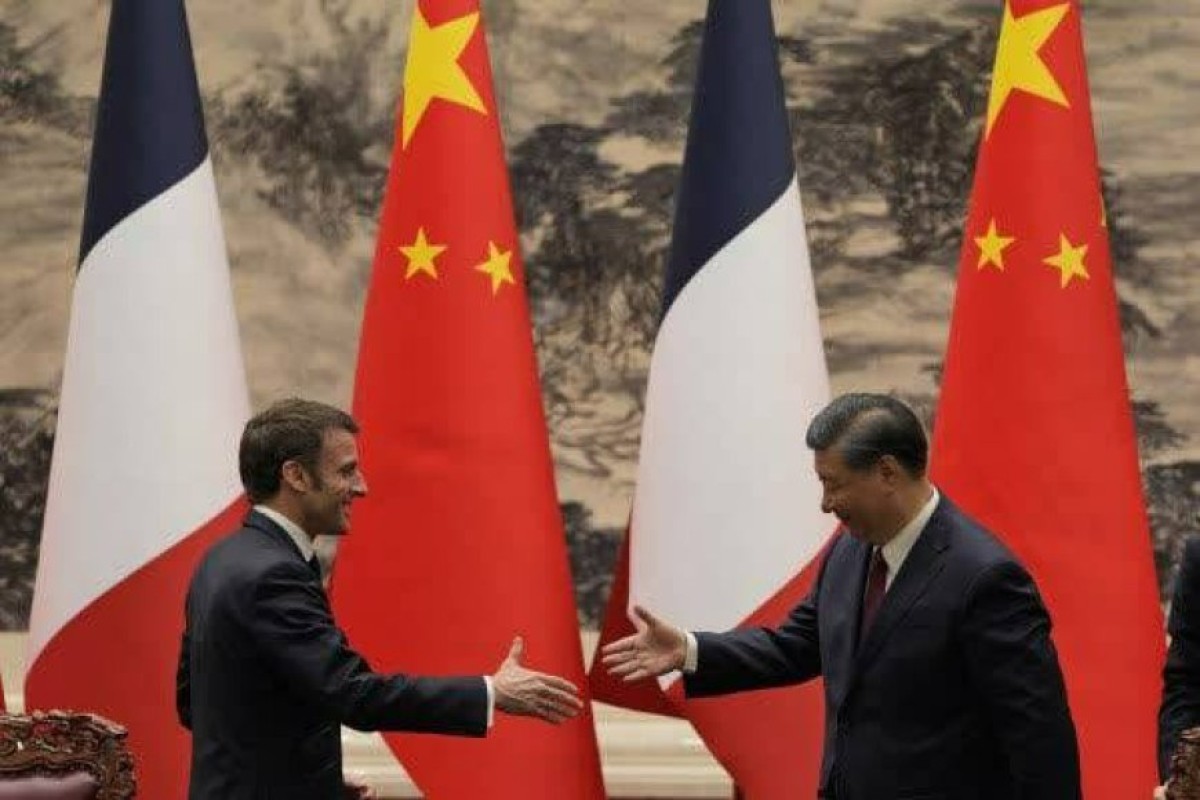 623
623
China's Diplomatic Outreach to Europe: A Bridge for Cooperation and a Path to End the War in Ukraine?
China's Diplomatic Outreach to Europe: A Bridge for Cooperation and a Path to End the War in Ukraine?
By: A. Yeganeh
In a meticulously orchestrated diplomatic maneuver, Chinese President Xi Jinping embarked on a multi-nation tour of Europe, with France, Serbia, and Hungary serving as his primary destinations. While the official rationale for this tour was to commemorate anniversaries in Sino-European relations, many observers of international affairs have discerned a deeper strategic calculus underpinning these visits.
France: A Pivotal Ally Amidst Shifting Alliances
In recent years, France has sought to assert its independence within the European Union, advocating for greater autonomy in decision-making. This stance has resonated with China, which has recognized the value of cultivating closer ties with Paris as a means of countering the growing influence of the United States in Europe.
President Xi's visit to France underscores Beijing's determination to deepen its relationship with Paris, particularly in light of the ongoing conflict in Ukraine. While the United States has pressured Europe to impose sanctions on China, France has maintained a more nuanced approach, recognizing the importance of preserving its economic ties with Beijing.
Serbia and Hungary: Defying Western Isolation
Serbia and Hungary have also been courted by China due to their proximity to the Eastern Front and their declared support for Russia in the Ukraine conflict. This stance has isolated them within the European Union, disrupting their economic relations with Western countries.
President Xi's visit to these two nations signals China's unwavering support for its allies, defying Western attempts to ostracize them. By expanding economic relations with Belgrade and Budapest, Beijing seeks to bolster their resilience and send a clear message that they are not alone.
A Peace Initiative Amidst Trade Tensions
Amidst escalating trade tensions between China and the European Union, President Xi has proposed a peace initiative during the upcoming Paris Olympics. This proposal reflects Beijing's multifaceted strategy of engaging with Western countries while simultaneously preparing for potential conflict.
By presenting itself as a proponent of peace, China aims to reduce tensions with the West, creating a window of opportunity for economic growth and development. However, it is also signaling its willingness to defend its interests, including in potential conflicts involving Taiwan or other disputed territories.
Pressuring the United States and Exploiting Western Dissatisfaction
Another key objective of China's European tour is to exert pressure on the United States. Beijing is capitalizing on the growing international protests against the policies of the United States and European countries, particularly in relation to the conflict between Israel and Palestine.
Beijing seeks to harness this dissatisfaction, which is especially prevalent among European populations, to draw protesting nations towards the Eastern axis. By doing so, Beijing aims to expand its sphere of influence and weaken the dominance of the United States in global affairs.
China's Ascent Amidst International Turmoil
China has also embarked on a strategic endeavor to exert pressure on the United States by deftly exploiting the prevailing geopolitical landscape. The tumultuous events unfolding in West Asia, particularly the conflict between the Zionist regime and the Palestinian people, have ignited a global outcry and galvanized international protests against the policies espoused by the United States and its European allies. Beijing has astutely discerned the groundswell of discontent permeating the European populace, particularly in light of these events. China's strategy is to capitalize on this dissatisfaction and draw these protesting nations into its sphere of influence, thereby bolstering the Eastern bloc and rapidly expanding its support base.
Conclusion
China's European tour is a testament to its growing diplomatic assertiveness and its determination to shape the geopolitical landscape to its advantage. By cultivating closer ties with France, supporting its isolated allies in Serbia and Hungary, proposing a peace initiative, and exploiting Western dissatisfaction, Beijing is seeking to create divisions within the European Union, counter the influence of the United States, and expand its own sphere of influence. These steps demonstrate that China is a major player on the world stage, with the ambition and capability to reshape international relations in its favor. The implications of this strategic gamble will undoubtedly be felt for years to come.
 623
623
Comment
Post a comment for this article